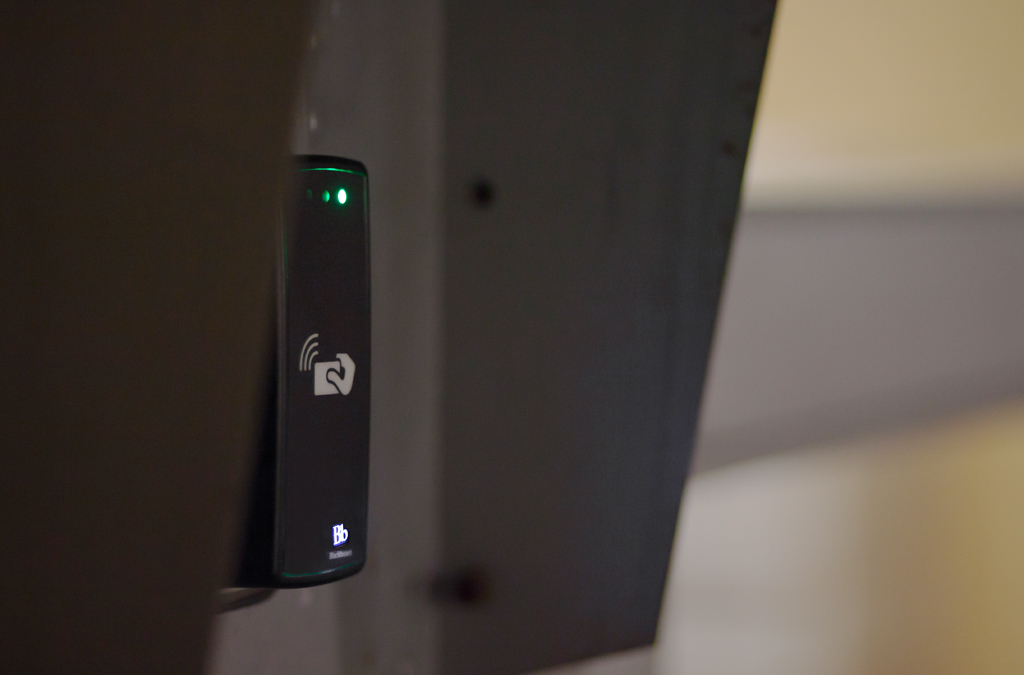New ID cards were issued to all returning students this summer. The switch occurred because of a new system, which required card sensors across campus to be changed.
The new Internet-run security and auxiliary purchasing system will allow more capabilities for ID cards.
New system doesn’t charge extra fee
This new system that is run by Blackboard may eventually allow Biola students to use their ID cards for vending machines, laundry, or even to buy meals at nearby off-campus restaurants. Don Sims, senior directory for Auxiliary Services assured that the change in system was expensive, but the funds used were obtained without using students’ tuition money.
“The funds came from Auxiliary Services budget,” said Sims.
Sims also confirmed that the cost of the new system, approximately $350,000, was funded by revenue generated from housing, food services and other consumer goods services. Campus organizations such as Conference Services also helped fund the project by generating money through renting unused facilities throughout the summer.
Blackboard enables more capabilities
Biola is slowly implementing the system and trying to perfect its on-campus usage first in smaller ways like using it to make copies in the library and gain access to residence halls. Mary March, administrative assistant for Auxiliary Services, stated that there is an entire new security system for the buildings on campus.
According to Carolyn White, operations manager for Auxiliary Services, Biola had previously used Apollo as the main information system, for 22 years and would now like to see everything be on the computer.
“All Apollo could do was building access and we wanted to do more,” White said.
Implementing the new system
After using Apollo and manually managing the system for that many years, the search was on for an updated system that was not so “buggy,” as White called it. A few years ago, Biola installed a main information system called Banner, that is now working in partnership with the Blackboard system named Transact. After experimenting with Banner, Biola decided to interview other companies and schools like Loyola Marymount University, whose student ID cards used Blackboard.
“The larger the student body, the harder it got to do everything manually,” March said.
Biola already uses Blackboard Learn, an Internet platform that allows students to connect with their professors through email and check their current grades throughout the semester. The multiple platforms Blackboard offered appealed to Biola.
“We saw with Blackboard that we could do things in phases,” White said.
During the summer of 2011, Biola went to Blackboard for dining. This summer Biola began using Blackboard for building access and ID cards, though the transition to new campus-wide printed ID cards turned out to be tricky.
“It was a complicated process because we had to install a whole new infrastructure. There was a high volume of printing over the summer,” March said.
New cards help both students and Auxiliary services
The new ID cards feature a microchip inside the plastic exterior called a FeliCa chip that no longer requires Auxiliary Services to import individual student information to make ID cards and set up meal plans.
“We can now do mass imports automatically,” March said.
The Blackboard card access has a feature called “Student $” that allows students to add money other than flex points, which can be used for making copies in the library and in the near future may be able to purchase amenities at the bookstore, White said. “Student $” can be added at a station called PHIL located in the library near the reference desk. There are also cards attached to the machine so if students have problems with their own ID cards, they can still add money to their student account in order to use the new library access feature of the Blackboard Transact system. The PHIL station only takes paper money at the moment, but it may in the near future take credit cards soon as well. White hopes that this new system will allow students simpler access to school resources.







